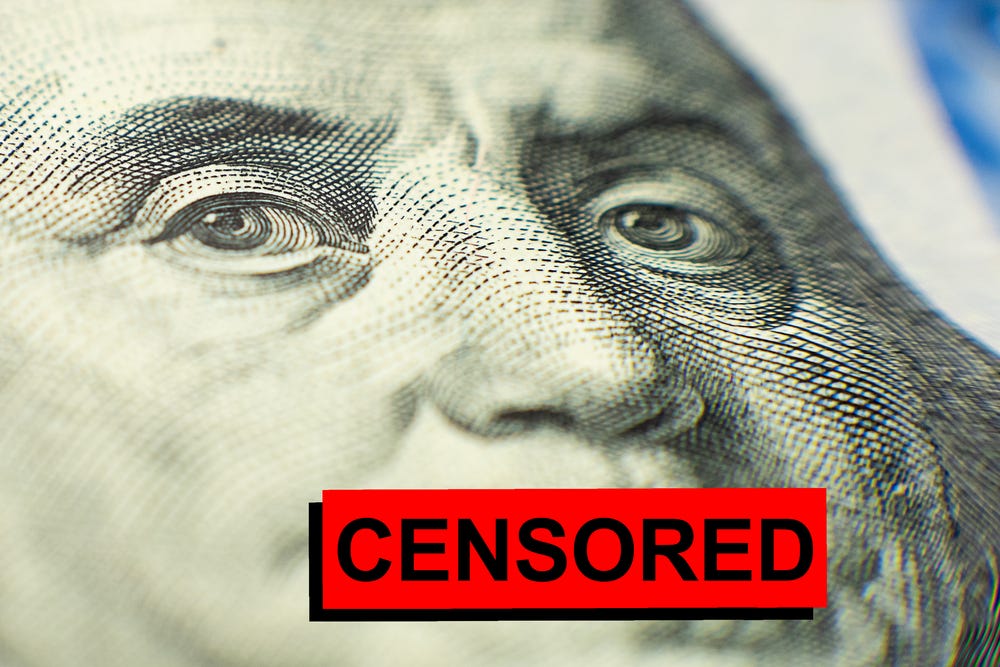E-Pluribus | December 28, 2022
Astrophysics out of focus; financial regulators' backdoor attack on speech; and pay no attention to the big wooden diversity horse.
A round-up of the latest and best writing and musings on the rise of illiberalism in the public discourse:
Jonathan Kay: In the World of Astrophysics, One Failed Cancel Campaign Led to Another
In his Quillette piece on a dust-up over the naming of a NASA telescope, Jonathan Kay observes that “no good deed goes unpunished” in the “social-justice hothouse.” Kay details the experiences of astrophysicist Hakeem Oluseyi after Oluseyi debunked false claims of “homophobia” made against former NASA legend James E. Webb.
Oluseyi isn’t a culture warrior (except perhaps by accident). And his investigative report wasn’t written as an explicit attack on the men and women repeating misinformation about Webb. Indeed, Oluseyi didn’t print their names, and was careful to contextualize his conclusions with bridge-building language that emphasized their shared commitment to social justice:
“As a Black scientist from the Deep South who’s had to navigate the shoals of a scientific establishment where I’ve not always felt welcome, I imagine how I would feel if I faced the equivalent—a flagship national observatory named after someone who was accused of being a staunch racist and national enforcer of racial segregation. Thankfully, Webb was not the bigoted homophobe who led State Department witch hunts, as rumored.”
But of course, no good deed goes unpunished in this kind of social-justice hothouse, where status is earned by leading successful vilification campaigns against heretical colleagues, non-ideologically compliant institutions, and (as in this case) deceased historical figures. Because the required posture is one of militant zeal and unflagging moral conviction, there is no face-saving way for activists to back down from their demands even once the underlying factual claims melt away.
Read the whole thing.
David B. Rivkin Jr. and Andrew M. Grossman: The NRA vs. the Censorship ‘Mob’
With the First Amendment standing in the way, some in government seem to always be looking for a loophole. Writing in The Wall Street Journal, David Rivkin Jr. and Andrew Grossman explain one such attempt by the state of New York to silence the National Rifle Association by leaning on the organization’s insurer.
Maria Vullo led the New York State Department of Financial Services, which has broad power to regulate almost every major financial player in the U.S. After the February 2018 school shooting in Parkland, Fla., Ms. Vullo and then-Gov. Andrew Cuomo issued a press release stating that the department would “urge” the insurers, banks and companies it regulates “to review any relationships they may have with the National Rifle Association” for “reputational risk.”
The goal was to punish the NRA for its gun-rights advocacy. The press release quoted Ms. Vullo as saying that corporations need to “lead the way” on “positive social change . . . to minimize the chance” of future shootings. “DFS urges all insurance companies and banks doing business in New York to join the companies that have already discontinued their arrangements with the NRA.”
[. . .]
The NRA alleges in a lawsuit that, in a meeting with Lloyd’s, Ms. Vullo acknowledged that these problems were widespread in the marketplace but made clear that her focus was the NRA policies. The key to minimizing liability, she emphasized, was joining the department’s efforts to combat the availability of firearms by weakening the NRA.
Lloyd’s got the message. Despite its reputation for insuring even the most controversial risks, it understood that its regulator considered working with one of the nation’s most broadly supported advocacy organizations to be off-limits. Lloyd’s publicly announced that it was terminating all business with the NRA. It signed a consent decree with DFS permanently barring it from participating in any insurance program with the NRA—rather than the usual remedy of bringing policies into compliance and possibly paying a fine. The decree didn’t cover the non-NRA policies that ran afoul of the same New York laws. The NRA says its corporate insurer refused to renew its policy because it feared similar reprisals after seeing DFS target Lloyd’s and another NRA-affinity insurer.
Read it all here.
John Staddon: Diversity Is a Trojan Horse
On its face, “diversity” appears to be a noble goal. Writing for Minding the Campus, John Staddon says however that what you see isn’t always what you get as the citizens of Troy learned the hard way.
Diversity may be an agreeable outcome, but it should never be a goal for science. Here’s an analogy: confronted with a picture, an admiring viewer exclaims, “What a wonderfully colorful painting!” Would any sensible person infer from this that “colorfulness” is the ne plus ultra of painting; that no painting lacking color can be excellent? Of course not: Vermeer’s Girl with a Pearl Earring is not particularly colorful, but it is a great painting. In short, colorfulness is an accidental result of the effort to produce a good painting.
There are some things that are legitimate, intrinsic goals. There are also agreeable conditions that are nevertheless not legitimate goals; call them accidental. In painting, beauty—hard to assess, to be sure, but some aesthetic quality—is an intrinsic goal, but colorfulness is an accidental outcome of the attempt to achieve beauty. In science, truth is an intrinsic goal, but diversity, assessed simply by numerical racial representation, is accidental—like colorfulness in a painting. Diversity is pleasing to many, but it is utterly irrelevant to science, which is entirely about empirically provable fact.
Read it all.
Around Twitter
Some excerpts from a David French thread on how the First Amendment applies to government speech in response to a somewhat controversial thread French posted earlier regarding government actions revealed in The Twitter File series:
Oliver Traldi engages with writer Sam Mace on Mace’s essay “The myth of liberal neutrality":
And finally, President Biden celebrates Christmas by throwing some serious shade at his old White House partner Barack Obama. Ouch.











